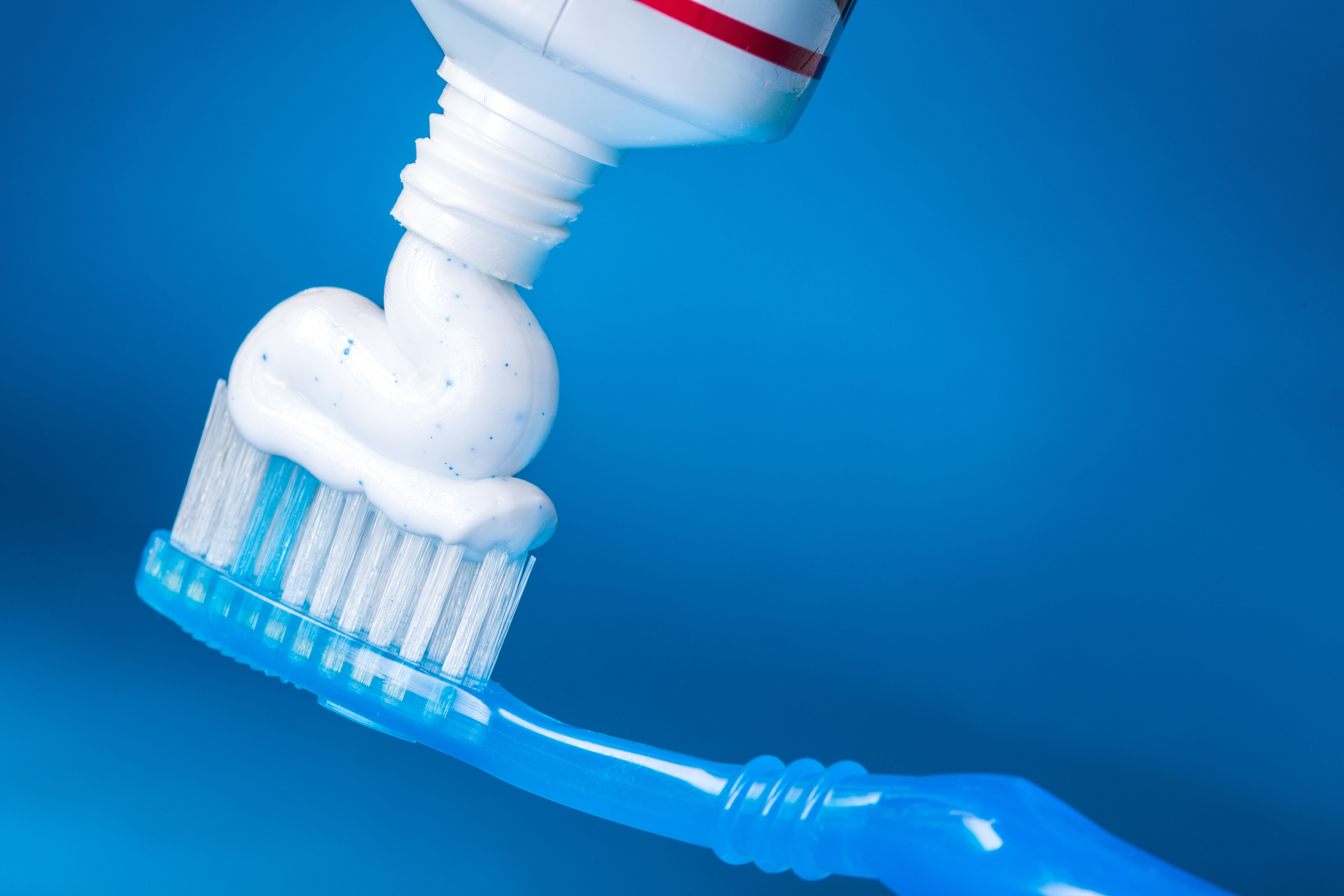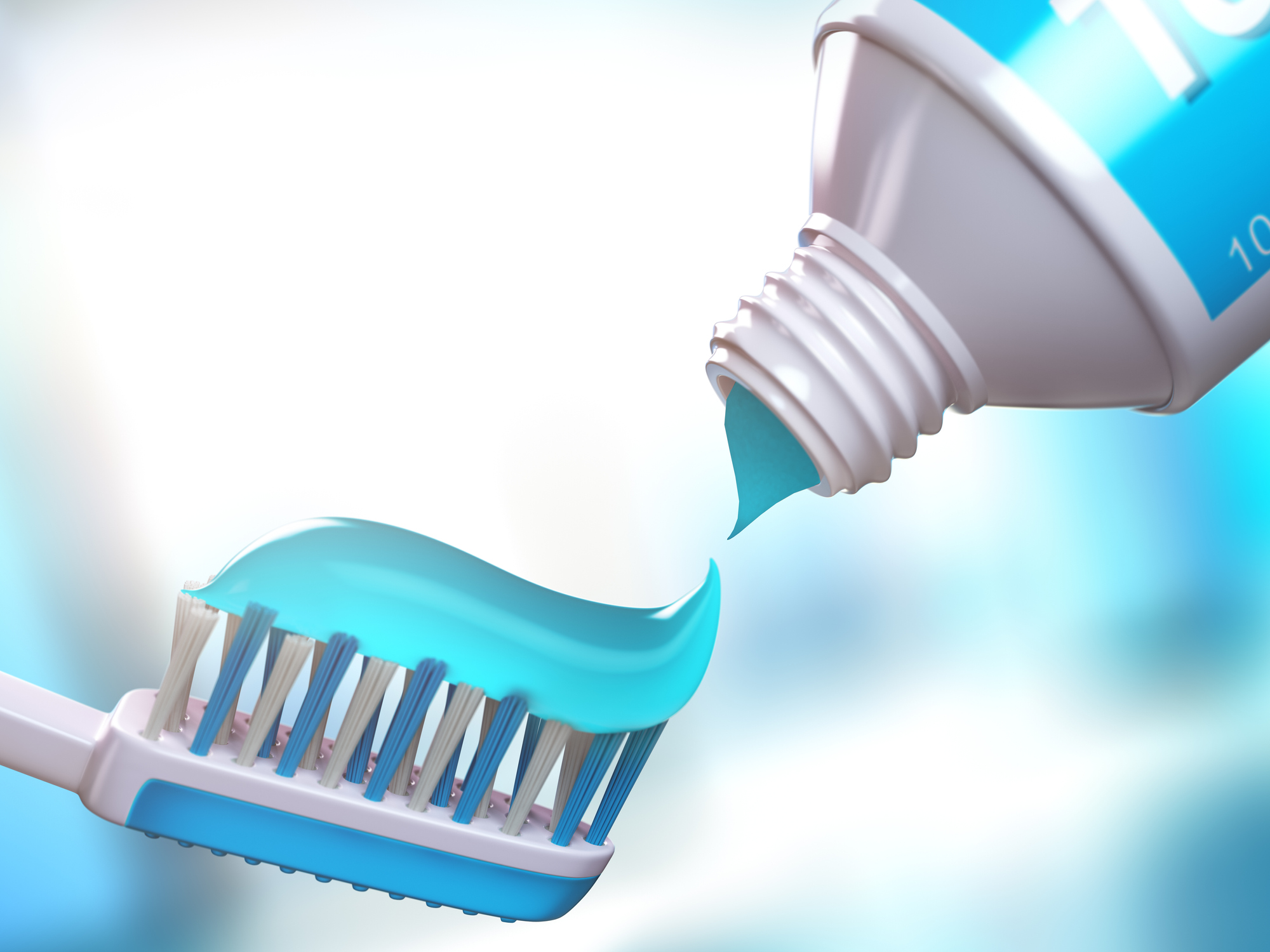-
How Fluoride helps to prevent Tooth Decay

Fluoride helps keep her smile clean, fresh, and strong.
What is Fluoride?
Fluoride is a naturally occurring mineral. It is an element and has been found to protect teeth from tooth decay. Fluoride can be found in the water supply, but it is also found in many foods such as oatmeal, raisins, shellfish, potatoes and others.
How are Cavities Formed?
We all have bacteria living in our mouths. The bacteria feeds on sugars from foods that we eat. When that happens, the bacteria secrete an acid that can cause teeth to decay. That decay of the enamel can have serious consequences, including cavities and even loss of the tooth. The decay of the tooth is called demineralization.
How Does Fluoride Work?
Nature’s Cavity Fighter-Fluoride is a naturally occurring mineral. With a healthy diet and regularly healthy habits it can be used to help prevent tooth decay. It works to build tooth enamel so that teeth are less susceptible to decay because they’re stronger.
Fluoride also repairs tooth enamel after decay has begun. This repair process is called remineralization.
Fluoride Has Been Proven Safe and Effective
Studies have shown that fluoride added to water supplies is extremely beneficial when it comes to cavity prevention. For over 70 years, communities have been adjusting fluoride levels and there is extensive proof that fluoridated water is very effective in the prevention of tooth decay. How is fluoride added to the water supply? Fluoride is already present in the water supply. Most communities adjust the amount of fluoride in the water so that it’s at a safe level but is also effective in the remineralization of tooth enamel.
How Can You Work Fluoride into your Routine?
- Fluoridate toothpaste
Even children as young as age 3 can begin using a fluoridated toothpaste, as long as a small amount is given on the toothbrush. For adults, brushing twice daily with a fluoridated toothbrush will be effective in cavity prevention.
- Fluoridated mouthwash
Mouthwash that contains fluoride has been proven effective in the treatment of cavities. However, it is not recommended to give mouthwash to small children. Fluoride treatment as administered by a dentist, is available to people who are at high risk for tooth decay. This includes people who have poor dental hygiene, those who live in communities with low fluorine levels in the water supply.
- Fluoride in food
Fluoride can be found in many foods, too. This kind of fluoride is called systemic fluoride. Some foods that contain fluoride are grapes, apples, strawberries, grapes, spinach, potatoes, veggies, seafood, tea, coffee, and many more.
Ask your dentist for more information about getting enough fluoride into your routine.
Park 56 Dental
Have questions about fluoride, fluoride treatments, or the best way to get fluoride into your routine? Voted #1 in New York City, the dentists at Park 56 Dental have the answers! Park 56 Dental is known for great dentistry. We provide the best treatments in town from pediatric dentistry to endodontics, oral surgery to prosthodontics, emergency to sedation dentistry. You and your family can count on us to make you feel welcome and comfortable at each visit! Be sure to visit our website or if you’d like to make an appointment, click here to book online or call (646) 679-3989.
-
How to Choose the Right Toothpaste for Your Unique Dental Needs

Picking the right toothpaste
How hard can it be to choose a toothpaste?
How do you go about choosing a toothpaste? It seems like it should be easy! Once you get to the store, though, it’s easy to be overwhelmed by all the options. With so many toothpastes from which to choose, how do you pick the right one? Here, we offer some helpful tips for choosing the right toothpaste for your unique dental needs.
Know the Basics
Toothpastes contain abrasive agents, flavoring agents, detergents, humectants, and detergents, and are available in gel, paste, powder, or tablet forms. There are two important things to look for in a toothpaste: fluoride and the ADA seal of approval. Fluoride has been proven to protect against tooth decay and help to remineralize teeth, and the ADA (American Dental Association) must verify that a product is effective before that product can display the seal of approval.
Evaluate Your Dental Needs
Think about what you want a toothpaste to accomplish for you beyond just cleaning your teeth. Some common concerns include bad breath, sensitive teeth, plaque, gum disease, tartar, and yellowing teeth. Once you have assessed what you need, look for a toothpaste that fits with your concerns.
- Preventing cavities: Fluoride is a major factor in preventing cavities and strengthening enamel. Choose a toothpaste with mild abrasives, like hydrated silica or calcium carbonate, to remove plaque and surface stains without damaging enamel.
- Tartar control: Bacteria can cause biofilm on the teeth, and this can lead to plaque. When biofilm traps salivary calcium and phosphate, it crystallizes into tartar, also called calculus. While this is removed by the dental hygienist during your cleanings, it can be helpful to use a tartar control toothpaste in between visits. These toothpastes typically contain ingredients like zinc citrate and triclosan.
- Sensitivity: Dental pain is typically due to dentin hypersensitivity. Toothpastes with potassium and fluoride can help with sensitivity, as can toothpastes with strontium chloride, calcium carbonate, or arginine. Using desensitizing toothpaste for at least eight weeks can help reduce dental pain.
- Gum disease prevention: Toothpaste with ingredients that have antibacterial properties, like triclosan or stannous fluoride, can help prevent gum disease by reducing plaque and gum inflammation.
- Controlling bad breath: Brush your teeth for two to three minutes, at least twice a day, with a fluoride toothpaste. Brush your tongue from back to front, or use a tongue scraper. Baking soda can be effective for eliminating halitosis (bad breath), either in a baking soda toothpaste or on its own.
- Whitening teeth: There are several whitening toothpastes on the market, with bleaching ingredients like silica, pyrophosphates, and hydrogen peroxide. Hydrogen peroxide is a good option because it is gentle and won’t cause irritation in your mouth. If you do experience any uncomfortable symptoms, contact your dentist.
Choosing a Toothpaste for Children
Children over age six typically use adult toothpaste. Before that, as long as the toothpaste meets the fluoride and ADA seal requirements, you can choose a fun toothpaste for your children, to encourage them to brush frequently. Look for fun flavors, sparkles and swirls, or toothpaste in a container decorated with fun characters or superheroes. Make sure, though, that you teach children to spit out the toothpaste instead of swallowing it, because ingesting toothpaste can lead to chronic fluorosis for kids.
Partner with the Dentist Voted Best in New York
If you’re looking for a dentist in New York, why not choose the dentist voted best in the city? At Park 56 Dental Group, we offer pediatric, prosthodontics, endodontics, oral surgery, Invisalign®, emergency, and sedation dentistry, all at the highest level of treatment. We serve the Midtown, Central Park, Upper East Side, Park Avenue, and all surrounding Manhattan and New York areas, with a patient-centered practice that has hours to fit your schedule. Schedule your complimentary consultation today by contacting us online or calling us at (212) 826-2322. For more dental advice, check out our other blogs!
-
What to Look for When Buying Toothpaste

Buying toothpaste seems like it would be a simple process. When confronted by shelves and shelves of options, though, it can quickly become complicated. Add in some social media ads about alternative toothpastes and it’s understandable that you might be completely confused. Not to worry! We’ve got some tips to make buying your next tube of toothpaste simple.
- Make sure the toothpaste you pick is ADA approved. Toothpastes with the ADA seal of approval are safe to use and guaranteed to be effective.
- Check for fluoride. Fluoride helps prevent tooth decay by strengthening your tooth enamel. When you use toothpaste with fluoride, you can maintain and, in some cases, improve your oral health. There are two types of fluoride found in toothpastes, stannous fluoride and sodium fluoride, with stannous being the more effective type.
- Take a close look at the ingredients. Sodium laurel sulphate (SLS), for example is a controversial ingredient. While it’s useful for cleaning the teeth, removing bacteria, plaque, and food particles, there is also evidence that it can contribute to sensitivity and cause mouth ulcers for some people. If your teeth are sensitive, avoid SLS. If you do use it, don’t swallow it, because it can negatively impact your health. People with sensitive teeth might wish to look for potassium nitrate and strontium chloride, which can help desensitize teeth. Be wary of triclosan because this common bacteria-fighting ingredient may actually contribute to bacterial resistance.
- Consider your specific needs in dental care. Are you looking for better tartar control? Tooth whitening? Desensitizing? Gum health? Think about what you’re hoping to achieve with your oral care and that will help inform your toothpaste decision.
- Think about flavor and texture. While it may seem frivolous to choose a toothpaste based on the way it feels and tastes, it’s actually an important piece of the puzzle when you’re shopping for the right toothpaste for you. If you don’t like the way your toothpaste tastes, brushing your teeth will be less appealing.
- What about alternatives to traditional toothpaste? There are some toothpastes that use unconventional ingredients and are somewhat trendy, but are they as effective as traditional toothpaste? Probably not. For instance, toothpastes that use aloe vera aren’t likely to fight plaque or gingivitis any more effectively than other toothpastes, and most aloe vera toothpastes lack fluoride. Charcoal is another trendy toothpaste ingredient, but it may do more harm than good, because it is abrasive and can damage your tooth enamel.
- Ask your dentist for recommendations. When in doubt, ask a professional! Your dentist is an expert not only on tooth care but also on your unique oral health history.
If you’re looking for a dentist in New York, choose the practice that was voted best dentist in NYC! At Park 56 Dental Group, we offer pediatric, prosthodontics, endodontics, oral surgery, Invisalign®, emergency, and sedation dentistry, all at the highest level of treatment. We serve the Midtown, Central Park, Upper East Side, Park Avenue, and all surrounding Manhattan and New York areas, with a patient-centered practice that has hours to fit your schedule. Schedule your complimentary consultation today by contacting us online or calling us at (212) 826-2322.
RECENT POSTS
categories
- Uncategorized
- Cosmetic Dentistry
- Veneers
- Healthier Teeth
- Teeth Whitening
- Dental Health
- Video
- Dental Emergencies
- Invisalign
- Dental Implants
- Root Canal
- Sedation Dentistry
- Infographic
- Dental Crowns and Bridges
- Dental Anxiety
- Gum Disease
- COVID-19
- Bad Breath
- New York Dentist
- Cut out sugar
- General Dentistry
- Oral Health
- Oral Cancer
- Dry Mouth
- Gum Health
- Toothache
- Dental Sealants
- Cavities
